What type of steel is H-shaped steel
Update:2024-07-12 View(s):849 Keywords :H steel, industrial H steel, H-beam steel
H-shaped steel is a hot-rolled steel with an H-shaped cross-section. It is often used in building structures, engineering structures, and machinery manufacturing. The unique shape of H-shaped steel makes it have excellent performance when subjected to strong and torsional forces, so it is widely used in various projects.
First, the basic characteristics of H-shaped steel
The cross-sectional shape of H-shaped steel is "H"-shaped, with wider upper and lower flanges and thicker webs in the middle. This shape makes H-shaped steel have higher compressive and bending stiffness when subjected to vertical loads. At the same time, the inner and outer slopes and angles of the flanges at both ends of the H-shaped steel are precisely designed to ensure its welding performance and stability. These characteristics make H-shaped steel play an important role in structural engineering.
Second, the use of H-shaped steel
1. Application in structural engineering: H-shaped steel is often used to make structural parts such as beams, columns, and trusses. Its excellent bearing capacity and stability make it an indispensable material in construction and bridge engineering.
2. Application in mechanical manufacturing: H-beam is also often used to manufacture supporting structures or load-bearing structures of mechanical equipment, such as cranes, conveying equipment, etc. These equipment need to maintain structural stability and safety when bearing large loads.
Third, the classification and standards of H-beam
According to different standards and requirements, the H-beam can be divided into a variety of models and specifications, such as the H-beam of the Chinese standard and the H-beam of the American standard. In different countries and regions, the production standards and specifications of H-beam will also be different. Therefore, when selecting an H-beam, it is necessary to select according to specific engineering requirements and standards.
Fourth, the production process of H-beam
The production of H-beam mainly adopts a hot rolling process, which first hot rolls the slab or billet, and then rolls it into an H-shaped cross-sectional shape through a rolling mill. During the production process, parameters such as temperature, rolling force, and cooling speed need to be controlled to ensure the mechanical properties and surface quality of the final product.
Fifth, the future development of H-beam
With the continuous development of engineering technology and materials science, the production process and performance of H-beam are also constantly improving and perfecting. In the future, as the demand for lightweight and high-strength materials increases, new H-shaped steel materials may continue to emerge to meet the material performance requirements of various engineering structures.
In summary, as an important structural material, H-shaped steel plays an important role in the fields of construction, engineering, and machinery manufacturing due to its unique cross-sectional shape and excellent performance. Through continuous technological innovation and improvement, the application scope and performance of H-shaped steel may be further improved, providing more reliable support for the safety and stability of various engineering structures.
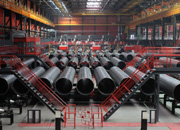 Threeway Steel is known as a professional supplier engaged in manufacturing and distributing a wide range of steel pipe, and our headquarter located the central part of China – Hunan and six associated factories throughout China.
Threeway Steel is known as a professional supplier engaged in manufacturing and distributing a wide range of steel pipe, and our headquarter located the central part of China – Hunan and six associated factories throughout China.
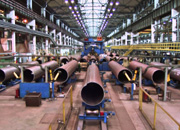 Threeway Steel is known as a professional supplier engaged in designing, manufacturing and distribution of a wide range of steel products with the headquarter located the central part of China – Hunan and six associated factories throughout China.
Threeway Steel is known as a professional supplier engaged in designing, manufacturing and distribution of a wide range of steel products with the headquarter located the central part of China – Hunan and six associated factories throughout China.
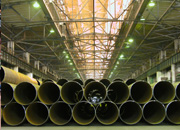 Threeway Steel is known as a professional supplier engaged in designing, manufacturing and distribution of a wide range of steel products with the headquarter located the central part of China – Hunan and six associated factories throughout China.
Threeway Steel is known as a professional supplier engaged in designing, manufacturing and distribution of a wide range of steel products with the headquarter located the central part of China – Hunan and six associated factories throughout China.
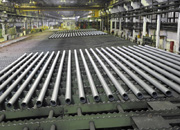 Threeway Steel is known as a professional supplier engaged in designing, manufacturing and distribution of a wide range of steel products with the headquarter located the central part of China – Hunan and six associated factories throughout China.
Threeway Steel is known as a professional supplier engaged in designing, manufacturing and distribution of a wide range of steel products with the headquarter located the central part of China – Hunan and six associated factories throughout China.
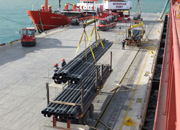 Threeway Steel is known as a professional supplier engaged in designing, manufacturing and distribution of a wide range of steel products with the headquarter located the central part of China – Hunan and six associated factories throughout China.
Threeway Steel is known as a professional supplier engaged in designing, manufacturing and distribution of a wide range of steel products with the headquarter located the central part of China – Hunan and six associated factories throughout China.

